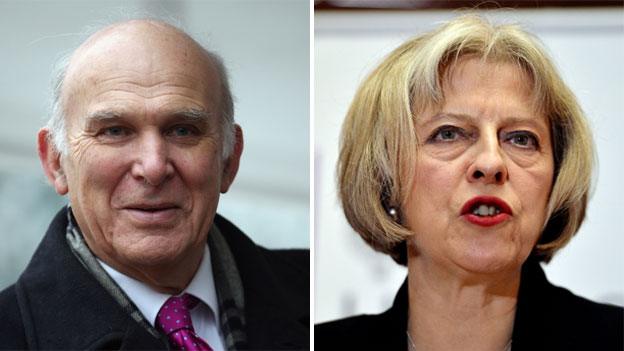Students urged to back counter-radicalisation programme
- Published

The new rules come into force on universities from 21 September
The National Union of Students (NUS) is being urged by ministers to support the government's counter-radicalisation programme, Prevent.
Universities Minister Jo Johnson has written to the NUS saying it was "disappointing" to see its opposition to the Prevent strategy.
The NUS said it had "legitimate concerns" about the impact of the policy on student welfare.
From 21 September, UK universities will have a new duty to stop extremism.
Institutions will also have to tackle gender segregation at events and must have proper assessment processes for invited speakers and ensure those with extremist views do not go unchallenged.
The guidance also sets out that universities must ensure that they have appropriate information technology policies, staff training and student welfare programmes in place to recognise and respond to the signs of radicalisation.
'Extremist ideologies'
Similar duties were put on councils, prisons, NHS trusts and schools in July.
The government's extremism analysis unit said at least 70 events featuring hate speakers were held on campuses last year.
In the letter to the NUS, Mr Johnson said: "Universities represent an important arena for challenging extremist views. It is important there can be active challenge and debate on issues relating to counter terrorism and provisions for academic freedom are part of the Prevent guidance for universities and colleges.
"It is my firm view that we all have a role to play in challenging extremist ideologies and protecting students on campus. Ultimately, the Prevent strategy is about protecting people from radicalisation.

Jo Johnson has written to the NUS, concerned about its opposition to counter-extremism plans
"It is therefore disappointing to see overt opposition to the Prevent programme... The legal duty that will be placed on universities and colleges highlights the importance that the government places on this."
Mr Johnson referred in the letter to comments made by an NUS officer who, he said, described the government's approach as a "racialised, Islamophobic witch-hunt" and to another union officer who claimed that strategies like Prevent "ultimately exist to police Muslim expression".
'Valid and appropriate'
An NUS spokeswoman said there were "legitimate concerns about the impact the Counter Terrorism and Security Act will have on student welfare".
"Criticism and debate is at the heart of the policy-making process, and so we would encourage government to listen and reflect on the legitimate concerns that exist to their agenda, rather than attacking organisations for simply not agreeing with their approach.
"As students' unions are not public bodies, and therefore not subject to the Act, it's confusing that the government are so focused on our work.
"NUS is a campaigning organisation so our opposition to this agenda - based on both principled and practical concerns, and passed at our most recent national conference - is both valid and appropriate."
On Wednesday the Prime Minister, David Cameron, will chair the first meeting of the extremism taskforce since the general election.
Nicola Dandridge, chief executive of Universities UK, said: "Universities have an important role to play in preventing violent extremism and promoting free speech.
'Other influences'
"Universities have strong partnerships with the police and security services and have engaged with the government's Prevent strategy for a number of years. This new duty is a continuation of that work."
She added: "In relation to how people may become radicalised, it is important to remember that universities are only one part of young students' lives and they have many other influences away from campuses such as the web, social media and membership of non-university groups."
David Corke, director of education and skills policy at the Association of Colleges, said: "The safeguarding of students is of paramount importance and many colleges see the Prevent duty as an extension of this responsibility.
"Preventing young people from being drawn in by extremist rhetoric and getting involved in activities which could put them or others at risk is something that colleges take extremely seriously."
The UCU lecturers' union warned that the anti-extremism policy threatened freedom of speech and that universities needed to protect the right to academic freedom and open debate.
"The best response to acts of terror is to retain our universities and colleges as open democratic spaces, rather than close down debate and create mistrust between teacher and student, which is what these plans risk doing," said the union's general secretary, Sally Hunt.
- Published26 August 2014
- Published6 March 2015

- Published13 July 2015
- Published1 March 2015
